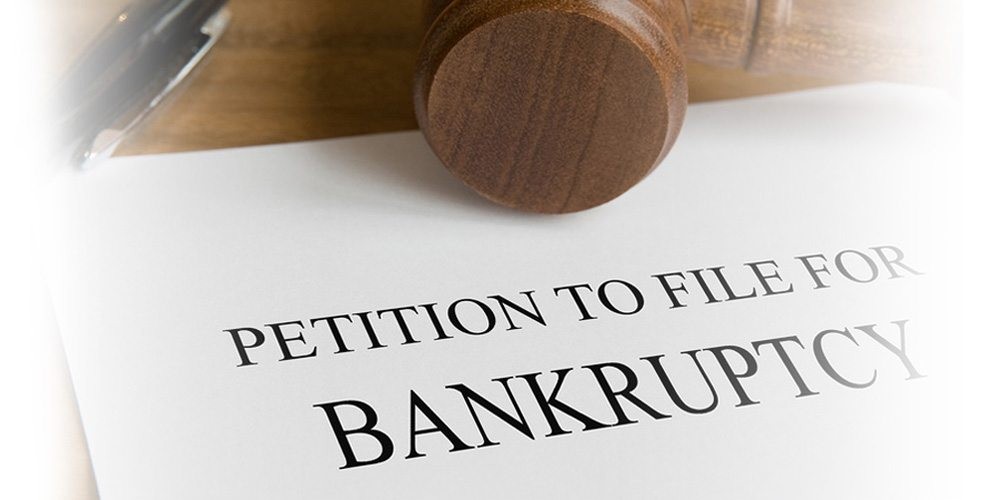Hundreds of thousands of people every single year avail themselves of the bankruptcy protections. The Bankruptcy Code promises a “fresh start” for honest, but unfortunate, debtors and allows them to discharge debts they owe to creditors prior to filing their bankruptcy petitions. Discharge eliminates the obligation on those debts forever after. For better or worse, however, when Congress drafted and subsequently amended the Bankruptcy Code, they saw fit to save some debts from the jaws of the bankruptcy discharge. This article seeks to review these exceptions and provide candid advice for how appropriate handling.
Exceptions to the bankruptcy discharge are exactly what they appear – upon discharge from the bankruptcy case, when all the other debts get eliminated, these debts will not be discharged and the debtor’s obligation to pay the debts will remain. In general, debts excepted from discharge are driven by public policy. For convenience, I have detailed the most common exceptions by category and added an accompanying citation to the Bankruptcy Code.
Tax Debts: A public-policy exception to the bankruptcy discharge. Note, however, the exception applies to the income tax itself, not necessarily the interest or penalties that accrues from non-payment. Stay tuned for a future article that discusses tax debts and bankruptcy in greater depth.
Citation:
- 11 U.S.C. § 523(a)(1) – Income tax debts owed to federal, state, or local governments.
Domestic Support Obligation Debts: As I wrote in “Until Death (or Discharge) Do Us Part – Divorce and Bankruptcy”, while bankruptcy and divorce often go hand-in-hand, the debts created from the divorce are sometimes excepted from the bankruptcy discharge. Few of my clients are surprised to learn that alimony and child support will continue after they receive a discharge. Take note, however, that some debts incurred during the divorce may also be excepted. Examples include court-ordered property settlements and assignment of attorney fees.
Citations:
- 11 U.S.C. § 523(a)(5) – Domestic support obligations (e.g. alimony and child support); and
- 11 U.S.C. § 523(a)(15) – Debts incurred during divorce proceedings (court ordered property settlements or assignment of attorney fees).
Student Loan Debts: Another example of an exception to the bankruptcy discharge. The student loan landscape is constantly evolving. At the time of writing, federal student loan debts are not discharged unless the debtor proves an “undue hardship” sufficient to justify their discharge. Stay tuned for a future article that discusses student loan debts and “undue hardship” in greater depth.
Citation:
- 11 U.S.C. § 523(a)(8) – Most student loan debts.
Criminal/Unlawful Conduct Debts: Another example of an exception to the bankruptcy discharge. There are many subsections that deal with different types of criminal offenses.
Citations:
- 11 U.S.C. § 523(a)(2) – Debts incurred through fraud or false pretenses. Note, this also includes civil frauds for which the debtor was not charged with a crime;
- 11 U.S.C. § 523(a)(6) – Debts incurred as a result of willful or malicious injury to persons or property;
- 11 U.S.C. § 523(a)(7) – Most criminal fines and restitution obligations;
- 11 U.S.C. § 523(a)(9) – Debts incurred as a result of injury to person or property resulting from driving under the influence of drugs or alcohol; and
- 11 U.S.C. § 523(a)(13) – Restitution obligations pursuant to Federal law.
Miscellaneous Debts: Flowing primarily from the Bankruptcy Abuse Prevention and Consumer Protection Act (BAPCPA) of 2005, Congress sought to reduce and eliminate fraud in bankruptcy filings and therefore excepted some miscellaneous categories. The most important takeaway from these exceptions is to inform your bankruptcy attorney of all your debts in order to best strategize and make the most of the discharge.
Citations:
- 11 U.S.C. § 523(a)(3) – Unlisted or unscheduled debts; and
- 11 U.S.C. § 523(a)(4) – Debts incurred for luxury goods within ninety days of filing or credit card cash advances within seventy days of filing.
In my experience, the far and away most common kinds of non-dischargeable debts for the vast majority of my clients are income tax debts, student loan debts, and domestic support obligation debts. If you have those kinds of debts and are considering a bankruptcy filing to resolve your other debts, do not fret. There are ways to handle even the debts that are exceptions to discharge. The best strategy for handling non-dischargeable debts in a bankruptcy will vary depending on the unique facts of your case. In general, the analysis will start with what chapter of bankruptcy you are filing.
n a Chapter 7 bankruptcy, the process moves quickly and unless you have non-exempt property that the Trustee will liquidate for the benefit of your creditors, they will receive nothing from your bankruptcy case. The non-dischargeable debts themselves, however, will survive the discharge and you will be responsible to pay them after your case is complete. If your Chapter 7 has assets to liquidate and proceeds to distribute to creditors, the Bankruptcy Code provides the order of their priority for payment. These creditors will receive something for their claims. You should discuss how much, if anything, your creditors will receive from this hypothetical distribution with your bankruptcy attorney. When your case is complete, you will be responsible for any remaining balance of these debts.
In a Chapter 13 bankruptcy, the picture is much different. Some debts are required to be paid through the plan if you are delinquent (e.g. income tax debts, delinquent child support or alimony, and delinquent criminal fines and restitutions). In other circumstances, you may pay those directly to the creditor (e.g. ongoing child support and future income taxes). In still other circumstances, the creditor may receive payment on a pro rata bases along with other creditors and any unpaid balance will survive the bankruptcy discharge (e.g. student loan debts). You should discuss with your bankruptcy attorney how these debts will be treated in your Chapter 13 plan.
An unorthodox (and certainly not guaranteed strategy) that is colloquially known as a “Chapter 20” involves filing a Chapter 7 to receive a discharge for allowed debts and then, soon after discharge, filing a Chapter 13 to pay all of the non-dischargeable debts over a three to five year period. Again, this is an unorthodox strategy and may be considered “bad faith” in your jurisdiction. Consult a qualified bankruptcy attorney to discuss the appropriateness of this option. One question that many of my clients have when we discuss the issue of non-dischargeable debts is whether they can contest the dischargeable nature of those debts. Yes. Read on for more.
The Bankruptcy Code seeks to do equity to both creditors and debtors. Accordingly, there is a process to determine the dischargeable nature of a debt. The process is called an “Adversary Proceeding”. An Adversary Proceeding is essentially a lawsuit within the confines of your bankruptcy case where you make your case as to why the debt is dischargeable and the Bankruptcy Court should therefore grant you that relief. For example, think of a federal student loan that you want to discharge. In order to discharge that student loan, you will have to first start a lawsuit and name the Department of Education and the student loan servicer as defendants. You will have to plead specific facts that show you have met all the requirements to support an “undue hardship” and ultimately, you must persuade the Bankruptcy Court to rule in your favor. The same is true of contesting the dischargeable nature of your debts. Buyer beware – the process may be costly and time consuming with no guarantee of success. You should discuss with a qualified bankruptcy attorney whether the time and monetary investments are worthwhile before pursuing that action.
An old saying posits that “nothing is more certain in life than death and taxes.” A corollary to which is that taxes will never be discharged by a bankruptcy. Rest assured, however, that the vast majority of consumer debts are dischargeable in bankruptcy. While some are not going to be discharged, alleviating yourself of the burden of the ones that are dischargeable will bring you a great deal of relief and better ability to handle the ones that were excepted. If you or a loved one are saddled with inexorable debt, the experienced, proven, and trusted bankruptcy attorneys at Mooney Law stand ready to assist you and answer your questions. Consultations for bankruptcy are always free at Mooney Law. To schedule a FREE consultation, call us today at 833-MOONEYLAW or at 717-200-HELP. You can also visit the firm website at https://www.mooney4law.com.



